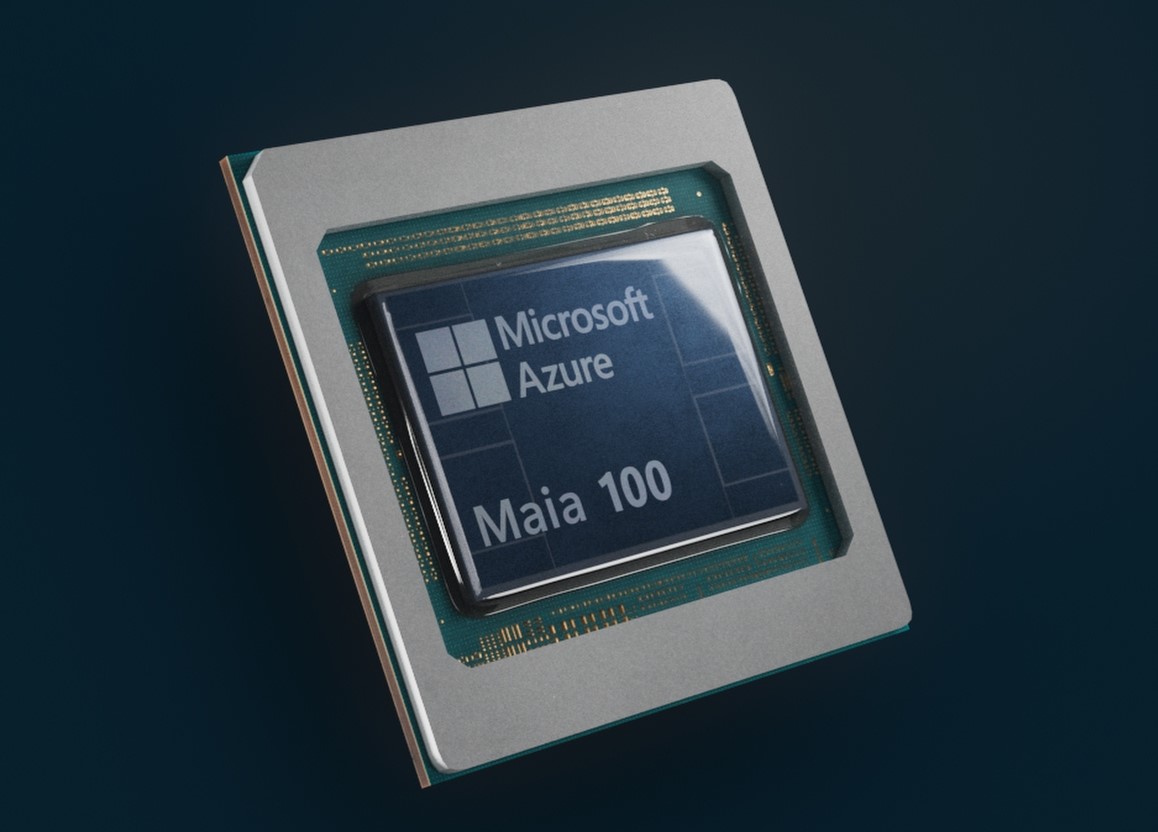Microsoft introduced the Azure Maia AI Accelerator as its inaugural creation for facilitating extensive language model training and inference within the Microsoft Cloud environment. This move signifies Microsoft’s entry into the domain of server processors, particularly emphasizing AI optimization, bolstered by insights from OpenAI, the developer behind ChatGPT.
Positioned as a pivotal component within the Azure infrastructure, these processors represent the final element in Microsoft’s quest for comprehensive control over all layers of its cloud software ecosystem, a sector witnessing substantial growth in the company’s operations.
Distinguishing between the Azure Maia AI Accelerator, tailored for tasks involving advanced artificial intelligence, and the Azure Cobalt CPU, an Arm-based processor catering to general cloud computing functions, Microsoft aims to deploy these chips across its data centers early next year. Initially, the focus will be on leveraging these processors for internal operations, powering services like Microsoft Copilot and Azure OpenAI Service before expanding their utilization to accommodate additional workloads.
This strategic move by Microsoft, unveiled at the recent Ignite conference, follows Amazon’s foray into custom server processors through the acquisition of Annapurna Labs. Amazon Web Services has since diversified its offerings with specialized AI chips like Tranium and Inferentia to support large-scale model processing.
In a bid to keep pace with industry peers, Microsoft’s endeavor aligns with Google’s pursuit of Arm-based chip development, coupled with the evolution of Tensor Processing Unit chips for machine learning tasks within Google Cloud.
Scott Guthrie, the executive vice president of Microsoft’s Cloud + AI Group, emphasized the imperative of refining and integrating every facet of the infrastructure stack at a scale that ensures enhanced performance, supply chain extension, and diversified infrastructure options for customers.
While initial reports on Microsoft’s custom silicon initiatives surfaced earlier this year, the company reveals a long-standing covert development effort at its Redmond facility. Collaborating closely with OpenAI, Microsoft underwent rigorous testing and refinement processes to optimize the Maia device, garnering praise from OpenAI CEO Sam Altman for revolutionizing AI infrastructure and cost-efficiency.
Further announcements at Ignite encompass Microsoft’s introduction of novel Artificial services, including Copilot Studio for tailored Microsoft 365 services, Copilot expansion in Microsoft Teams, and the availability of Windows AI Studio catering to developers.






